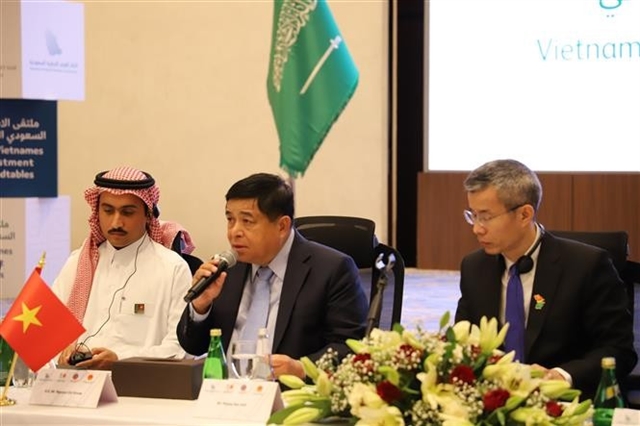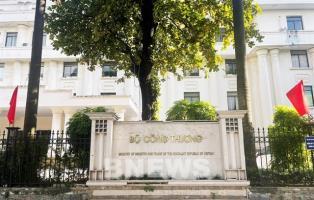Deputy Prime Minister Nguyễn Chí Dũng chaired the Việt Nam – Saudi Arabia investment roundtable in Riyadh on Monday as part of his working trip to Saudi Arabia, calling for stronger bilateral cooperation and greater participation from Saudi investors in Việt Nam’s growing economy.

RIYADH — Deputy Prime Minister Nguyễn Chí Dũng chaired the Việt Nam – Saudi Arabia investment roundtable in Riyadh on Monday as part of his working trip to Saudi Arabia, calling for stronger bilateral cooperation and greater participation from Saudi investors in Việt Nam’s growing economy.
The event gathered officials of Việt Nam and Saudi Arabia, representatives from dozens of Vietnamese companies and nearly 30 Saudi enterprises. Participants came from various sectors including renewable energy, finance and banking, real estate, trade, services, and high-tech agriculture.
Speaking at the event, Dũng said Việt Nam has pursued strong and comprehensive reforms and remains committed to maintaining the “spirit of reform” to become one of the top two most attractive investment destinations in Southeast Asia.
Saying economic, trade and investment cooperation between the two nations has yet to match their strong political ties and the great potential of Saudi investors, he encouraged businesses from both sides to explore more opportunities and expand partnerships.
He described Saudi Arabia as a “gateway” for Việt Nam to enter the Middle East, while Việt Nam serves as a “bridge” for Saudi investors to access the ASEAN market. To deepen cooperation, he proposed several key measures.
First, the two sides should boost economic connectivity, particularly by studying the possibility of direct flights linking major economic hubs, and by strengthening cooperation in services and tourism.
Second, Việt Nam and Saudi Arabia should further promote bilateral trade, particularly through increasing imports of Vietnamese agricultural and seafood products. He suggested support for Việt Nam to access the Halal goods and services market and the development of Halal industrial zones in Việt Nam. He also called on the Saudi Arabian side to support the negotiation of a Việt Nam – Saudi Arabia Free Trade Agreement (FTA).
Third, both countries should enhance cooperation in renewable energy, encouraging Saudi Arabian participation in solar, wind, green hydrogen, and energy storage projects in Việt Nam.
Fourth, Saudi Arabian investment funds and enterprises are urged to expand investment in sectors where both sides have complementary strengths, such as science and technology, innovation, digital economy, smart cities, and new economic models including financial centres and free trade zones. He also welcomed their interest in developing large-scale tourism complexes in Việt Nam.
Fifth, Saudi Arabian enterprises that have already landed investments in Việt Nam should act as bridges for broader business cooperation. Both sides should also increase cultural exchanges, trade promotion events, and business delegation visits to enhance mutual understanding.
The Deputy PM affirmed that the Vietnamese Government is committed to standing by investors and creating all possible conditions for both domestic and foreign enterprises, including those from Saudi Arabia.
During the roundtable, representatives from the Ministry of Finance introduced Việt Nam’s investment climate, while businesses from both countries discussed areas of interest and put forward proposals to strengthen cooperation.
Economic and trade ties between Việt Nam and Saudi Arabia have made notable progress in recent years. Bilateral trade reached US$3.1 billion in 2024, up 14.5 per cent from 2023, and both countries aim to raise the figure to $10 billion by 2030.
In 2024, the two nations signed a Memorandum of Understanding on economic and trade cooperation, providing a legal framework to promote collaboration in areas such as supply chain development, industry, and the digital economy. — VNS



